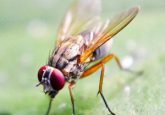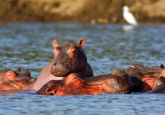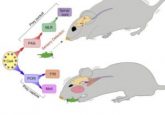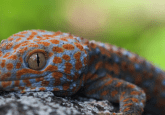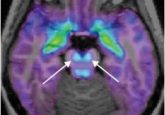Do bees have a mind of their own?
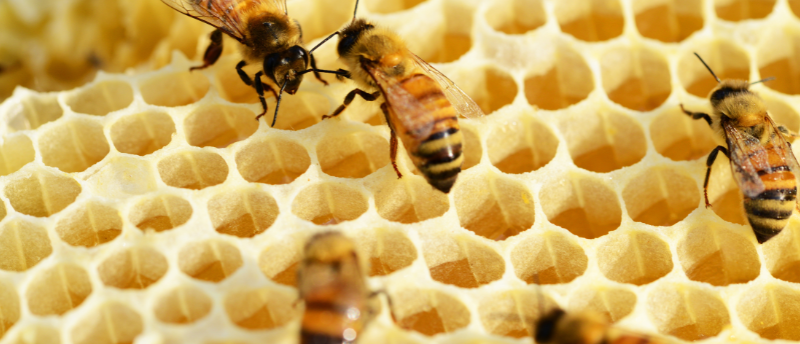
Researchers have discovered that bees can quickly adapt their methods of finding food by observing others in their colony.
A study recently conducted by researchers at Queen Mary University of London (QMUL; UK) has revealed that by observing others in their colony use a successful method of foraging for food, bees are able to improve their own methods of searching for nutrition. On top of that they can pass the behavioral trends on to other members of the colony leading to a quick spread in social change across a colony. Inspiring new ideas that bees can quickly respond to environmental changes more immediately than by evolutionary changes.
At first glance the civilizations of bees appear as if they are instinctive. However, due to this recent study, researchers are now inclined to believe that their society is more reliant on social learning rather than intuitive nature. To test this theory, scientists set up multiple experiments to explain the behavioral trends seen in bees. The scientists created a box containing a reward for the bees that could open in two ways: by pushing a red tab clockwise or by pushing a blue tab counterclockwise.
The bees were either labelled as ‘demonstrators’ or ‘observers’. The demonstrator bees would be trained to open the box using one of the two tabs. The observer bees would then be made to open the box by themselves. The results of the experiment showed that an overwhelming amount of the observers chose to use the method that they had been shown by the demonstrator bee. This trend continued even after the observers were shown the alternate method of opening the box, with a mean of 98.6% of observer bees preferring to practice the method previously shown to them by the demonstrator.
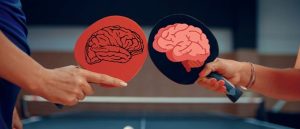 Is playing table tennis against a robotic opponent more challenging for your brain?
Is playing table tennis against a robotic opponent more challenging for your brain?
Researchers studying people playing table tennis have found that their brain activity varies when playing with a ball machine compared to a human opponent.
To back up this experiment a control group was formed in which the bees would have to attempt to open the box without having first observed a demonstration. The scientists discovered that there were far less bees who could open the box than bees who didn’t lack a demonstrator with a median of only 1 box being opened by the control group colony compared to 28 boxes from the bees with a demonstrator.
As an additional method of testing, the scientists put both demonstrator bees who had been taught to open the red tab and bees who had been taught to open the blue tab into the same populations of bees. The results showed that in one population, by day 12, 97.3% of the ‘observer’ bees preferred the red method whereas in the second population blue was the favored method. This demonstrated to the researchers how behavioral trends in a population can appear – not from any bees changing their preferred method of finding food but rather from the retirement of experienced bees and their replacement by new inexperienced bees.
In previous years it has been thought that the actions of bees in their societies have been based largely on instinct; however, through the discoveries made in this experiment and others like it, scientists are now considering that social learning also plays a large role in how colonies of bees function.
“Bumblebees – and, indeed, invertebrates in general – aren’t known to show culture-like phenomena in the wild. However, in our experiments, we saw the spread and maintenance of a behavioral ‘trend’ in groups of bumblebees – similar to what has been seen in primates and birds” explained Alice Bridges, the lead author from QMUL.
The research group hopes to learn if bees, like humans, are capable of culture, which could lead to the realization that many of the complex behaviors demonstrated by bees may have been socially learnt rather than instinctively.
Lars Chittka, Professor of Sensory and Behavioral Ecology at QMUL said, “The fact that bees can watch and learn, and then make a habit of that behavior, adds to the ever-growing body of evidence that they are far smarter creatures than a lot of people give them credit for”.

